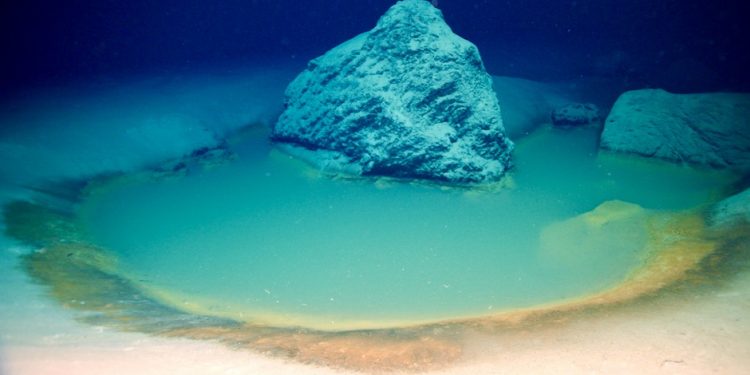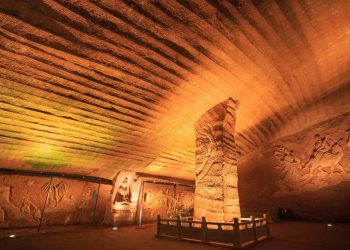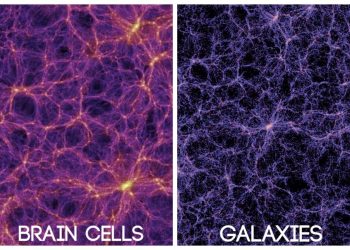As OceanXplorer dived into the Red Sea on its maiden mission, it discovered a large brine pool teeming with otherworldly life, extremophiles that live in environments we wouldn’t imagine possible on Earth, and provide clues about how life on Earth came into existence. Extremophiles are organisms that live in “extreme environments” and can withstand incredible temperatures and immense pressure.
Scientists discovered brine pools teeming with extreme microbial life in the northern extension of the Red Sea, the Gulf of Aqaba. OceanX and scientists who participated in the exploratory mission revealed that this is the first time a brine pool has been discovered in the depths of the Gulf of Aqaba.
According to scientists, this unexpected discovery provides clues to life on other planets –and moons– and how Earth’s oceans formed millions of years ago, eventually giving rise to the first inhabitants on this planet.
Professor Sam Purkis and his team used remotely operated underwater vehicles to make their discovery 1,770 meters below the sea surface in partnership with OceanX.
“Until we understand the limits of life on Earth, it will be difficult to determine if alien planets can host any living beings,” explained Purkis.
“Our discovery of a rich community of microbes that survive in extreme environments can help trace the limits of life on Earth and can be applied to the search for life elsewhere in our solar system and beyond.”
Despite being one of the world’s most extreme environments, brine pools contain vast amounts of life, despite their high salinity, exotic chemistry, and complete lack of oxygen. In addition, red Sea brine pool microbes have previously been found to produce bioactive molecules with anti-cancer properties.
Nature Communications published the research revealing the Gulf of Aqaba’s first brine pools.
“We were fortunate,” said Purkis.
“The discovery came in the last five minutes of the ten-hour ROV dive that we could dedicate to this project.”
Seawater-filled, zero oxygen pools close to the coast preserve information on tsunamis, flash floods, and earthquakes that occurred thousands of years ago in the Gulf of Aqaba. The Gulf of Aqaba has several faults and fractures associated with its tectonics.
A 500-year-old submarine landslide was discovered earlier this year by Purkis and his team, which may have caused a large tsunami in the area.
An article published on July 27 in Nature Communications Earth & Environment, titled “Discovery of deep-sea NEOM brine pools in the Gulf of Aqaba, Red Sea,” described the discovery.
NEOM, a Saudi Arabian coastal development company, partnered with OceanX for the four-week research voyage.
OceanExplorer, owned by OceanX, an ocean exploration organization, is equipped with advanced exploration, research, and media production capabilities. The vessel, formerly known as Alucia 2, is a media production studio of Hollywood standards and a floating marine research platform.
You can read more here.
Join the discussion and participate in awesome giveaways in our mobile Telegram group. Join Curiosmos on Telegram Today. t.me/Curiosmos











